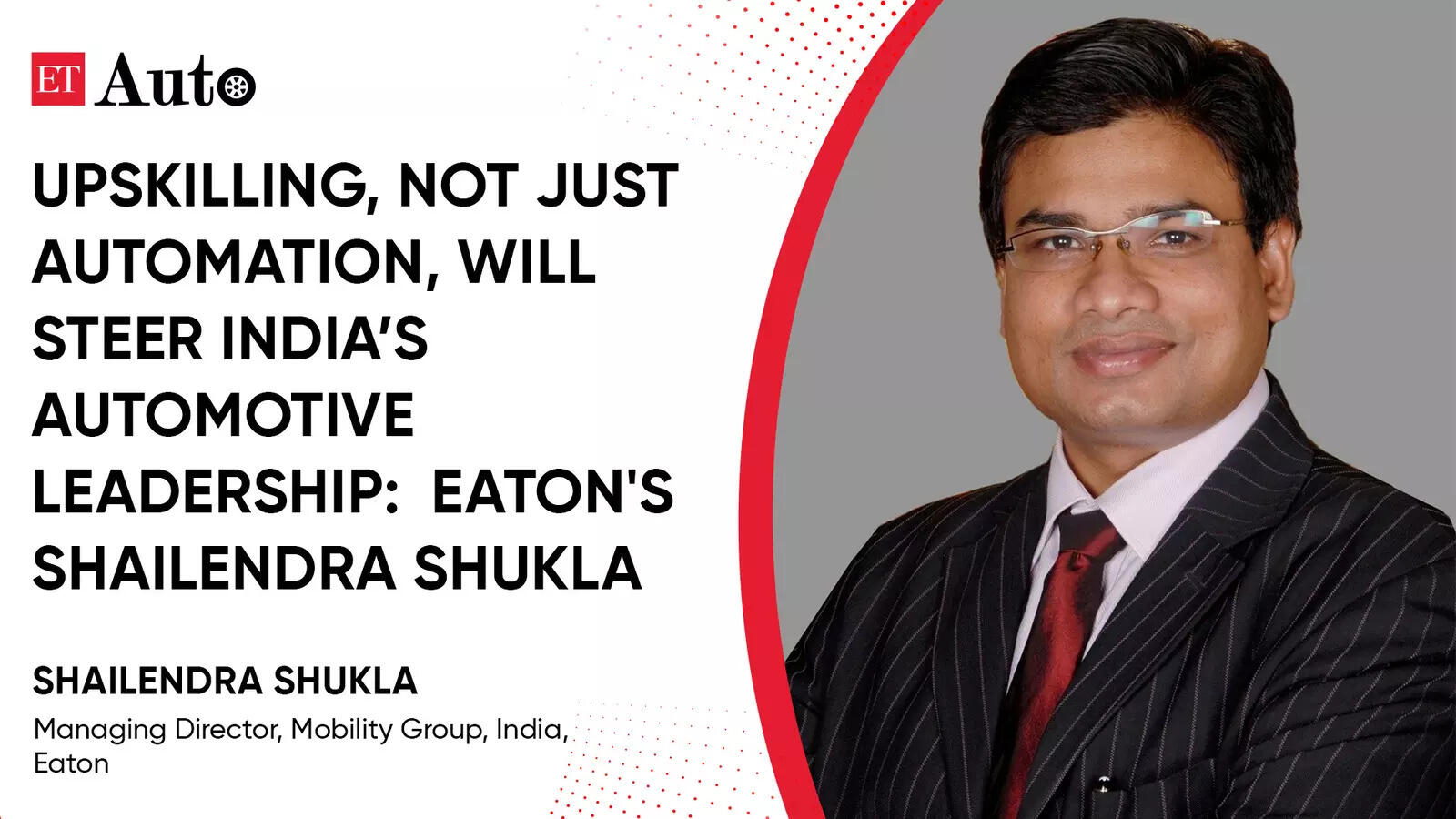
India’s race to the forefront of the global automotive grid will not be won by robots alone. That is the clear message from Shailendra Shukla, Managing Director, Vehicle Business and E-Mobility at Eaton India, who warns that upskilling is the country’s single biggest operational challenge, and its most decisive opportunity.
“You may have the best systems and even a dark factory, but without the right people managing it, there will be challenges,” Shukla says. “That is why we put leadership in people at the centre of our growth strategy.”
The global auto sector is undergoing a major and rapid transition towards electrification, alternate fuels, and compressed product cycles. In this environment, Shukla believes India’s true advantage will come from a workforce that can reskill as quickly as technologies evolve. While companies are pouring money into automation, he warns that many are failing to match this with a structured investment in human capability. Those that treat skilling as a discretionary cost risk falling behind, not just at home but also within their own multinational ecosystems, where sister plants across the world are often direct competitors for mandates.Shukla’s concerns go beyond skilling. Rising raw material prices, escalating labour costs, and the urgent need for faster logistics are exerting immediate pressure on margins and competitiveness. The fundamentals of quality, cost, and delivery remain unchanged, but in today’s environment the tolerance for delays or inefficiencies has all but disappeared. Indian manufacturing quality is now widely accepted across global markets, yet sustaining this reputation will require constant improvement in delivery speed and cost control.
Balancing today’s revenue with tomorrow’s readiness
Eaton’s India operations still draw most of their revenue from internal combustion engine transmissions, with more than 95 per cent of production serving the commercial vehicle market. But alternate fuels and electrified drivetrains are already part of its product mix, from LNG and CNG systems to four-speed transmissions for electric powertrains, which are currently exported in large volumes.Shukla expects ICE to remain relevant in commercial vehicles for years to come, even as hybrids and electrics expand, making dual readiness a necessity. “For Eaton, that means sustaining today’s cash flows while steadily building capabilities for tomorrow’s technologies,” he says.
Hydrogen, biodiesel, and LNG are areas where Eaton has developed in-house expertise. The challenge, according to Shukla, is in making investments that support both current and next-generation platforms without compromising delivery schedules or cost competitiveness.
On the sustainability front, Eaton has been among the early adopters of green steel from Indian suppliers, now accounting for roughly 20 percent of its steel…
Disclaimer
We strive to uphold the highest ethical standards in all of our reporting and coverage. We 5guruayurveda.com want to be transparent with our readers about any potential conflicts of interest that may arise in our work. It’s possible that some of the investors we feature may have connections to other businesses, including competitors or companies we write about. However, we want to assure our readers that this will not have any impact on the integrity or impartiality of our reporting. We are committed to delivering accurate, unbiased news and information to our audience, and we will continue to uphold our ethics and principles in all of our work. Thank you for your trust and support.
Website Upgradation is going on. For any glitch kindly connect at 5guruayurveda.com



